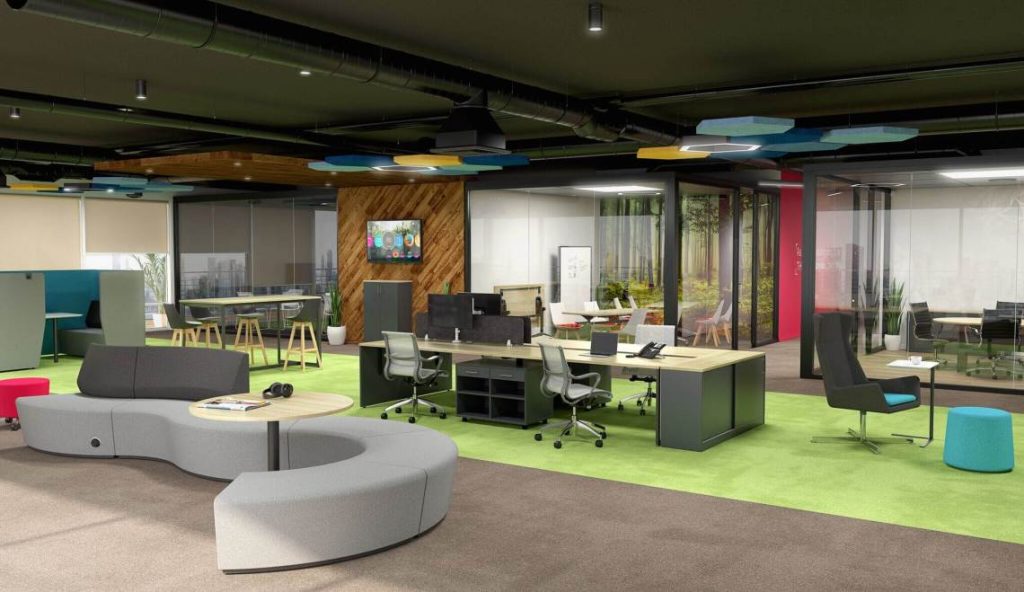Effective Strategies for Improving Employee Retention in the Modern Workplace

Retaining employees is a crucial aspect for any employer to consider, but it can be challenging owing to various factors. In a competitive job market, employees have more options and may leave if they feel their compensation, benefits, or opportunities for growth are not competitive enough. Meeting the high expectations of today’s workforce, particularly millennials and Gen Z, can also be difficult, as they value work-life balance, flexible work arrangements, professional development, and meaningful work. Employers must invest in the professional development of highly skilled employees and provide clear career paths to retain them.

Creating and maintaining a positive, inclusive, and engaging workplace culture is also necessary to avoid a high turnover rate. Economic factors such as freezing salaries or cutting benefits during times of uncertainty can impact employee retention, as can poor management or leadership. High-pressure environments, unmanageable workloads, or a lack of support for employee well-being can cause stress and burnout, leading to employee turnover. Lastly, recognising and rewarding hard work is essential, as employees want to feel valued and appreciated.
Employee retention is a critical issue for organisations, and HR plays a crucial role in strategies to improve it. Here are some ways HR can work to increase employee retention:
1. Competitive Compensation: Regularly review and adjust pay scales to ensure they are competitive. This includes not only salary but also benefits packages and perks that are of value to employees.
2. Career Development Opportunities: Offer opportunities for employees to learn, grow, and advance in their careers. This can include training programs, mentoring, and clear paths to advancement within the organisation.
3. Work-Life Balance: Encourage policies that allow for flexibility, such as remote work options, flexible hours, or family-friendly policies. Work-life balance is increasingly important to many employees.
4. Recognition and Reward: Develop programs to regularly recognise and reward employees for their hard work and achievements. This can be as simple as a thank-you note or as formal as an annual awards ceremony.
5. Engagement and Inclusion: Create a culture where employees feel engaged and included. This means regularly seeking employee input, fostering a diverse and inclusive workplace, and acting on employee feedback.
6. Effective Onboarding and Training: A well-structured onboarding process helps new hires understand their roles and the organisation’s culture. Ongoing training keeps employees updated with the necessary skills and knowledge.
7. Regular Performance Reviews: Regular feedback helps employees know where they stand and what’s expected. It also gives HR the chance to address any issues before they become more significant problems.
8. Provide Strong Leadership: Employees need to have trust and confidence in their leaders. HR can help develop strong leadership through training and development programs for managers.
9. Employee Well-being Programs: Offer programmes focusing on employee well-being, including physical health, mental health, and stress management.
10. Effective Conflict Resolution: Prompt and fair resolution of workplace conflicts helps maintain a positive work environment. HR can provide resources and training to managers to handle conflicts effectively.
11. More Remote Work: The COVID-19 pandemic demonstrated that many jobs can be done remotely. Remote work will likely continue even after the pandemic, at least for some roles. This means that future employees might be more geographically dispersed and need to be comfortable with digital communication and collaboration tools.
12. Increased Use of Technology and AI: Technology is becoming increasingly integral to most jobs, and this trend will likely continue. Future employees will likely need to be comfortable using a wide range of digital tools, and they may work alongside artificial intelligence (AI) or robotic systems.
13. Continuous Learning and Adaptability: As technology evolves, so will the skills needed to stay relevant in the job market. Future employees must be lifelong learners, regularly updating their skills and knowledge.
14. Diverse and Inclusive Workplaces: There is an increasing emphasis on diversity and inclusion in the workplace. Future employees will likely be part of more diverse teams and need to be comfortable working with colleagues from various backgrounds and cultures.
Remember, each organisation is unique, so what works well for one may not work for another. The key is to listen to your employees, understand their needs and wants, and create strategies that address them effectively.
About the writer Vuledzani Patrick Mugumo, a Director of IRG Group, a professional SABPP MHRP member, and a deputy chair of the SABPP Ethics Committee, a highly qualified Human Resources professional with over a decade of experience. He specialises in integrating technology and innovation, mainly using Artificial Intelligence (AI) for HR practices. Patrick holds a master’s degree in Programme Management and is pursuing a Doctorate in leadership, Technology, and Innovation Management. He has completed several certifications in HR, Training and development, Management, leadership, Organisational improvement, and Data Analysis. Patrick’s critical skills include AI implementation in Business Improvement, technology HR, HR analytics, strategic HR management, change management, and HR technology consulting. As a thought leader, he shares insights on leveraging AI for improved HR and Business Improvement processes at industry conferences.